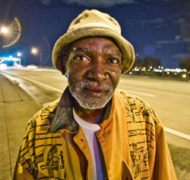See People, Not Just Employees
Blog / Produced by The High Calling
Peter Senge in the Fifth Discipline Fieldbook writes about the African culture of ubuntu. According to Senge, if you are a member of the Natal tribe, you say hello to others by saying sawu bona, which means, “I see you.” The proper reply to the greeting is sikona, or “I am here.” This greeting can be tracked back to what’s known as the spirit of ubuntu. Ubuntu is the acknowledgement that you are a person. Senge says ubuntu comes from Umuntu ngumuntu nagabantu, which in Zulu translates to “A person is a person because of other people.” It is not unusual for us in our culture to pass someone at work and not say hello. In the ubuntu culture, that’s a big disrespect. It’s basically saying one does not exist.
Senge goes on to tell a story about ubuntu in the modern business world. In recent years in Africa, corporations have started hiring members of local tribes as managers. In one particular meeting about a project, a key tribal member working on the project was never mentioned, even though he was present in the meeting. Later, the corporation folks discovered he was very upset. They asked him what upset him. He told them his name was never mentioned. They failed to make him a person.
I must admit, we in the business world get caught up in “projects.” We have our projects to sell more products, make more money for the organization, or just create a better organizational structure. We like to create project names for our creativity. It somehow makes our work more special, more historic in case it generates a new business trend. In some ways, our projects don’t fully exist unless we name them. So it’s okay to refer to our projects by name. How much more then do we need to call our people by their names!
Working at a gas station convenience store must be a thankless job. I sometimes do business with a small convenience store in our community. It is owned by a couple from Afghanistan. Because the husband’s name is so difficult to pronounce, he simply has everyone call him Joe. I’ve noticed Joe is treated with even less dignity than a normal convenience worker. That’s pretty low. He’s had customers look him the eye and tell he doesn’t belong in the USA and needs to head back to Afghanistan.
There was a time when I couldn’t care less about who was taking my money at a convenience store. But as I grow older, I try to at least acknowledge the person behind the counter. It’s usually not much more than a smile and a “Hello, how are you today?" But at least I acknowledge them as living persons. I do the same with Joe. It’s not much really—a hello, a “how are you doing?” or a comment on the weather. Sometimes I kid him and ask him if he’s making any money. He laughs and always has a good comeback. The other day, Joe told me his wife was about to have heart surgery. She had a leaky heart valve needing repair. I told him I’d be praying for her. When I looked up at Joe, I saw a look on his face I’d never seen before. He looked at me in all sincerity and said, “God bless you.”
In our Christian framework, perhaps ubuntu is known in another way: Unconditional love.
I enjoy rising early every morning, usually around 4:30-5:00. I like reading the Bible at first and praying. I then take a run and continue to dwell on God. It’s always been a special time. I rarely hear anything but an occasional car. (The paper guy racing through the neighborhood in his Ford Bronco has nearly run over me a few times. He screeches to a stop, pokes his head out the window and yells, “Sorry!” I wave to him and keep running and thinking.) But for the most part, it’s the most quiet, peaceful part of my day. And during this time, I feel God whisper, “I see you.” It makes me want to return the favor for the people around me.











